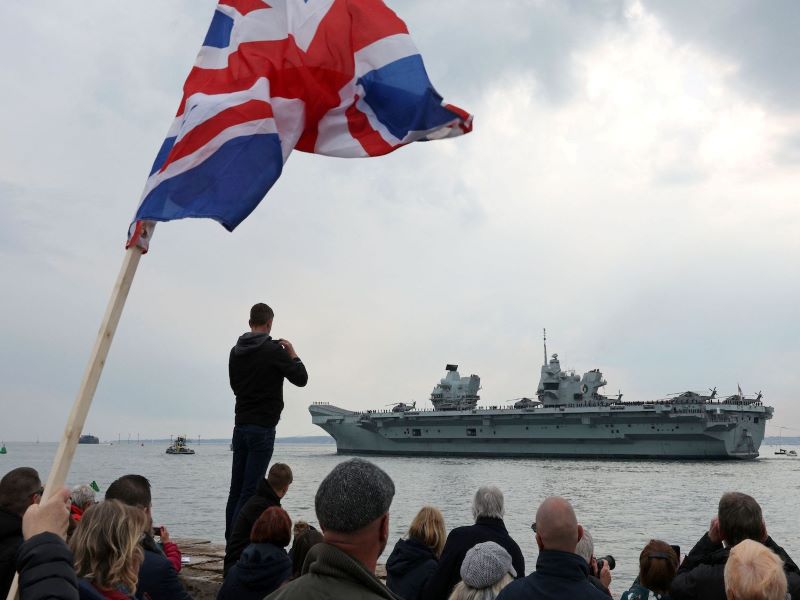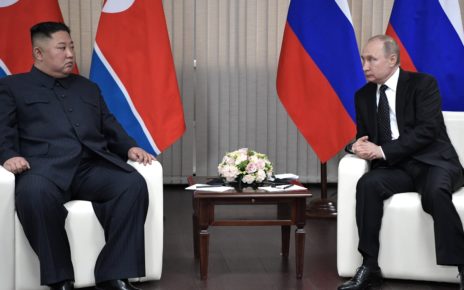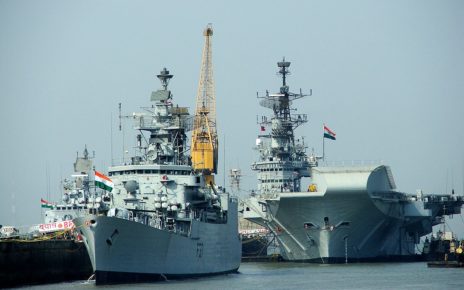NATO leaders agree that the Post-World War II international system is moving towards a deepening multipolar order, with the geopolitical and economic centers of gravity turning towards the Asian continent. However, this assertion has given way to a broad strategic definition, with specific states observing the importance of an East Asian, Indo-Pacific, or Western Pacific regional orientation for stability. Reacting upon this inflection point, like-minded allies of Canada such as the United States (US), United Kingdom (UK), and France have made a strategic pivot or tilt towards the region.
The changes in each of the state’s strategic concepts emerge from Asia having 60 percent of the world’s population and its rise as the global economic engine of the multipolar order. However, unilateral interests drive the four major NATO powers as well. As a result, strategic problems are emerging from these unilateral strategies aimed at addressing individual national interests, thereby challenging NATO’s unity, and cohesion in maintaining a regional understanding for transatlantic collective security. The same aforementioned emerging issues are also challenging the Alliance’s role in upholding the rules-based international order and highlight the growing call for developing an Indo-Pacific strategy.
It was clear from the Trump administration that America’s hegemonic strategy in the Indo-Pacific would encompass a significant outlook of great power competition (GPC). Sharing his predecessor’s outlook, President Biden, days after addressing the US State Department, reemphasized the growing likelihood of “extreme competition” with China. Although the American interpretation of GPC is not well defined, there is no doubt that such a strategy will emphasize maintaining its system of hub-and-spoke alliances with the inclusion of new partnerships to push back against Chinese assertiveness and aggression. President Biden asserts that competition with China is an imperative step for democracy, the rule of law, and the rules-based economic system to remain fundamental for global stability and peace. Nevertheless, the US’s strategy also accommodates American hubris in clinging to their remaining hegemonic prestige in the Indo-Pacific and globally.
The UK, like the US, has also elaborated a strategic tilt towards the Indo-Pacific through their “Global Britain” proclamation. For the first time in over 47 years, the UK is stepping outside the EU’s strategic grid. Seeking to become an “independent voice” in international diplomacy, along with the consequences brought on by BREXIT, the UK has committed its “Global” position towards the Indo-Pacific to uphold and promote prosperity, the rules-based international order, and being a “force for good.”
Through Boris Johnson’s prime ministership, the UK has strengthened its security cooperation with Japan, Brunei, and the Five Power Defense Arrangements (FPDA) members—the Commonwealth and former colonial states in Southeast Asian and the Western-Pacific. With these strategic footholds in the Indo- and Asia-Pacific, the UK believes itself to be a pivotal actor in the region’s political and economic management. Such expectations have become central in the UK’s decision to deploy the British Royal Navy’s biggest flotilla of warships in a generation to reinforce British Admiral Tony Radakin position of “where navies go, trade goes, and where trade goes, navies go.”
France, meanwhile, has legitimate territorial and sovereignty issues driving its Indo-Pacific strategy. Seeing itself as an “island state” in the region due to its multiple overseas territories—Mayotte, La Reunion, New Caledonia, and French Polynesia—France is striving to bridge the geopolitical areas closer together. With substantial defence and security architectures, robust inklings for multilateralism and a commanding voice in the EU and the United Nations Security Council (UNSC), and an exclusive economic zone of 11 million square kilometers encompassing Europe and the Indo-Pacific, France sees itself as vitally inseparable and proficiently fixed in promoting “a stable, law-based and multipolar order” in the region.
In comparison to its allies, Canada has been reluctant to develop a tilt to the Indo-Pacific. Although Canada is an Atlantic and Pacific country, a founding member of the Asia-Pacific Economic Cooperation and the Asian Development Bank, along with being a longstanding dialogue partner with ASEAN and its Regional Forum, the government under Prime Minister Trudeau is seemingly undecided on how to operate a new regional strategy in the wake of angering China further. Such inaction is disappointing as Canada’s long-held virtue of middle power status and diplomacy has helped build the rules-based international order’s resiliency against threatening security challenges. For instance, by engaging in ship-to-ship monitoring of flagged vessels violating the UNSC resolutions and joining joint naval exercises with partners and allies, Canada has shown its indispensable position in promoting and preserving a prosperous, stable, and sustainable rules-based order, along with self-serving its unilateral interests.
With the need to outline a better blueprint to utilize partnerships in attaining and advancing its strategic interests with the challenges from Sino-US GPC, NATO is beginning to change its strategic calculus. However, to ensure its relevance in protecting and promoting transatlantic security and a rules-based international order, NATO’s strategic calculus must assess the harmful effects of its members’ unilateral strategies on the Alliance’s unity and cohesion and its impacts on Indo-Pacific stability.
One such effect takes the form of disunity and incompatibility in NATO’s communal and collective structure. Disunity could occur as revisionist and antagonist states draw small or Eurocentric allies away from the Alliance through economically attractive projects like China’s Belt and Road Initiative or fall victim to Russian misinformation campaigns—leading to sweeping elections of populist, nationalist, and nativist leaders. Such an outcome will have dramatic consequences for NATO’s responses against territorial, economic and technological threats.
Second, multiple unilateral strategies from NATO’s major powers can destabilize the Indo-Pacific while accelerating the adherence to China’s hegemonic rule. This will result from a lack of clear and present centers for naval and air communications, thereby congesting the region’s waterways and airspace. Greater strategic involvement from individual transatlantic states can also reawaken the anxieties of the post-colonial state’s history with European imperialism, consequently enhancing an anti-Western sentiment from needed regional democratic allies and partners. Lastly, a growing presence from individual NATO members will heighten China’s mistrust of the West, seeing further attempts by NATO, as a collective organization, as a containment strategy aimed at preventing China’s great power rise.
Photo: The HMS Queen Elizabeth aircraft carrier leaving Portsmouth Naval Base in southeastern England (2021), by Foreign Policy. Public Domain.
Disclaimer: Any views or opinions expressed in articles are solely those of the authors and do not necessarily represent the views of the NATO Association of Canada.




